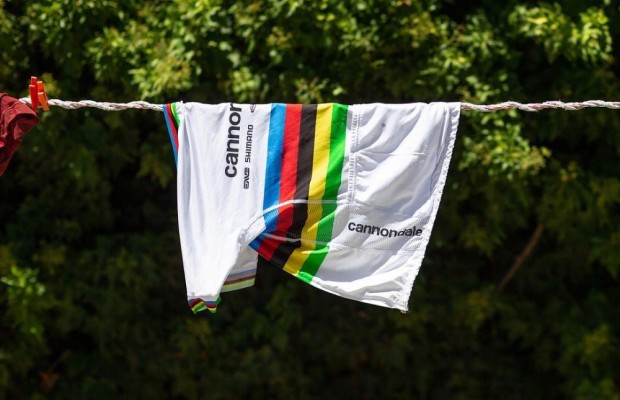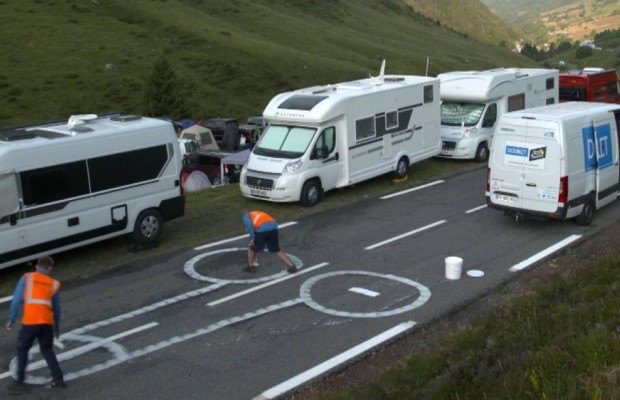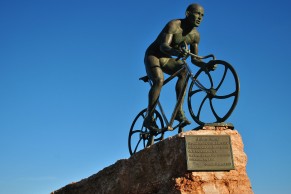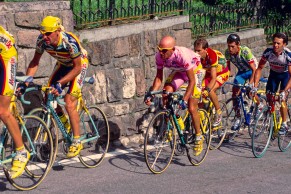Pantani: 18 years of an unsolved death
On a February 14 like this one, but in 2004, the life of the greatest 'pirate' since Long John Silver was extinguished in a hotel in the coastal town of Rimini. Even today he is still one of the most remembered and loved cyclists in the world, and especially in Italy, where he is a national hero. Almost as much for his irresistible attacks in the mountains as for his aura of a cursed poet on two wheels, it must be said. We are talking, of course, about Marco Pantani, 18 years after a death that is still unsolved. In fact, while his fans remember him in his hometown of Cesenatico, the carabinieri have reopened the investigation (already the third time), and are questioning new witnesses.

The 18-year struggle of Pantani's mother
It was 'mamma Tonina', Marco's own mother, who managed to get a new investigation into what happened that night at the Residence Le Rose hotel. In fact, the family has always maintained that there were things that did not fit with a simple case of overdose of cocaine and antidepressant drugs. The autopsy determined that this was the cause of Pantani's death, causing pulmonary and cerebral oedema. It also suggested that the injuries and bruises on the body may have been caused by a fall.
The first part of the 'Pantani case' began in 2004, and resulted in two convictions: drug dealers Fabio Miradossa (4 years and 10 months in prison) and Ciro Veneruso (3 years and 10 months), for supplying him with the drug that caused his death. However, thanks to Tonina's insistence, the Italian courts reopened the case in 2014... only to close it in 2016, as the investigating judge considered the suspicions of homicide to be "mere fanciful conjecture".
RECOMENDADO

The best apps for cycling and mountain biking

How to wash your cycling clothes? 10 keys to make them always look new

The real importance of signing up for a race

Complete list of the highest paid cyclists of 2025

This is how they erase the penises that are drawn on the roads of the Tour de France

What bike size do you need? Here's how to find out

That same year, the public prosecutor of another Italian city, Forlì, did prove in a document that the Neapolitan mafia had altered the haematocrit test for which the legendary climber was expelled from the 1999 Giro d'Italia, when he was about to win it, and later sanctioned. A situation from which he would never recover mentally and which would lead to a deep depression and a feeling of being harassed by forces he did not know. However, as the facts (which had to do with millionaire bets, in which it is not known whether the cyclist himself was involved) were time-barred, there could be no conviction.
In the light of these new revelations, and again at the insistence of 'mamma Tonina', the Italian Parliament's Anti-Mafia Commission took up the case, summoning several witnesses, including Miradossa himself, who claimed that, in his opinion, it had been a murder. At its conclusion, the Commission sent its findings to the Rimini Prosecutor's Office, requesting that the investigation be reopened, which it did last November.

The unsolved details
In addition to the dealer, the agents are listening these days (just 18 years after the event) to another new star witness: a taxi driver who claims that, that night, he drove two luxury prostitutes to the hotel where the Giro and Tour winner was staying, and that he later picked them up with clothes that they were not wearing when they entered the hotel.
This is one of the clues that the family is using to support their hypothesis of a homicide probably ordered by the camorra. According to the conclusions of the two previous judicial proceedings, the 'Pirate' died alone in the room, with the door locked from the inside. However, two ski jackets were found, when he had arrived without luggage. Furthermore, in 2014, it was published that 2 hours of the video recorded by the forensic police at the scene of the crime had been erased, and that no fingerprints had been taken.

But these suspicions (which, by that point, are not so far-fetched in a country with a omnipresent mafia culture) have spawned a whole sub-genre of conspiracy theory online, as well as in book form, with increasingly outlandish claims and political figures allegedly involved; there was even a film released last year that attempted to prove their veracity.
However, at present, the family's lawyer considers it highly unlikely that even murder can be proven 18 years later, although he is hopeful that something more can be clarified about how Marco Pantani died. It remains to be seen how it all turns out, but almost two decades on, this dark page of cycling is still as full of mysteries and unknowns as it was in 2004.